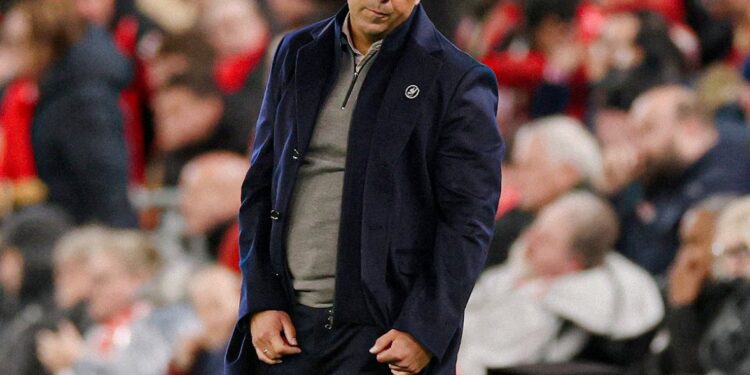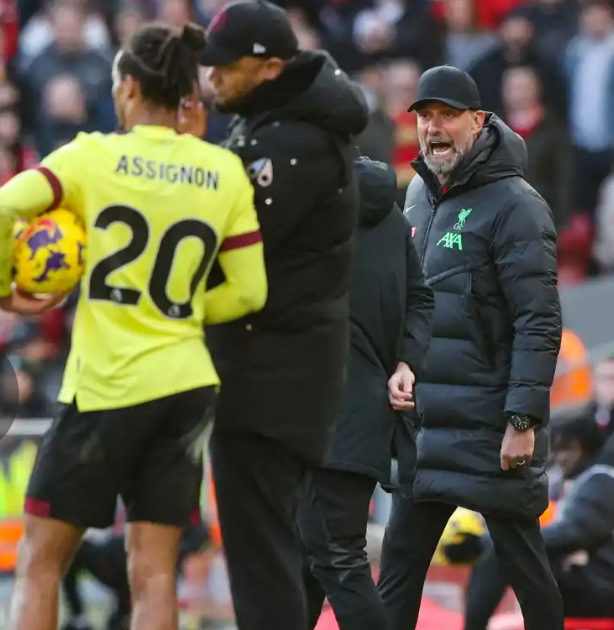In a moment of raw honesty rarely seen at the top levels of football management, Liverpool boss Arne Slot openly admitted that he is currently falling short of his own standards. Following a difficult stretch of results, the Dutch manager faced the media with humility and a sense of responsibility that immediately sparked reactions across the football world.

Slot didn’t hide behind excuses, injuries, or external pressures. Instead, he placed the spotlight directly on himself.
“If things go well or things go bad it’s always my responsibility,” he said, his tone firm but reflective. “I tried to adjust a few things that didn’t really work out.”
For many fans, the honesty was refreshing. For others, it was a startling reminder of the mounting pressure on the new Liverpool era. Slot, who arrived with high expectations and a mission to continue the club’s winning culture, understood the weight of his words. He continued:
“We have quality players. It’s my job to get the best out of them. I am not at the moment. It’s my responsibility.”
These comments mark one of Slot’s most candid admissions since taking over. His tactical tweaks — aimed at revitalising the team’s structure — have not yielded the consistency he hoped for. Yet his willingness to accept blame instead of deflecting it has earned him a wave of respect from supporters who value accountability.
Behind the scenes, insiders say Slot is deeply analysing the team’s performances, determined to find the correct balance and identity. His message to the players remains clear: unity, improvement, and responsibility start from the top.
The question now is how this honesty translates to the pitch. Liverpool fans have seen the team’s potential in flashes, but consistency remains elusive. With fixtures piling up and rivals gaining momentum, Slot’s challenge grows more urgent.
Still, his transparency might be the spark the squad needs. Managers who take ownership often inspire players to do the same.For now, one thing is certain: Arne Slot isn’t running from the pressure. He’s stepping directly into it — and Liverpool’s next chapter may very well depend on how he turns this moment of vulnerability into a turning point.










